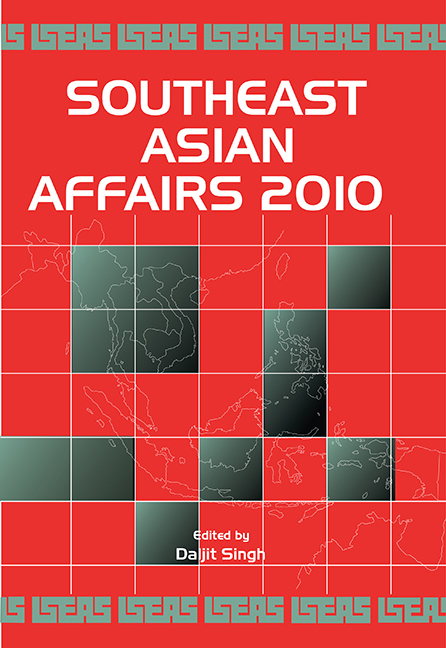Myanmar in 2009: On the Cusp of Normality?
from MYANMAR
Published online by Cambridge University Press: 21 October 2015
Summary
The year prior to the inauguration of Myanmar's first ostensibly civilian government chosen through multiparty elections since 1960 seemed remarkably ordinary after the alarums of the previous two annus horribilis. While 2007 saw public protests by Buddhist monks and 2008 the devastating Cyclone Nargis that resulted in approximately 140,000 deaths, despite various issues such as those discussed in Martin Smith's accompanying essay on relations between the military State Peace and Development Council (SPDC) government and various ethnically-designated organizations, the major political events of 2009 took place largely in meeting venues and courtrooms. The high drama that have marked so many of the years between the 1988 public protests which brought to an end the rule of the Burma Socialist Programme Party and 2009 was absent. Except for a few incidents, some verging on the tragic, others the farcical, Myanmar seemed rather similar to other ASEAN countries which are considered “normal” by most observers most of the time.
Daw Aung San Suu Kyi on Trial
The most bizarre event of the year was the arrest of a middle aged, unemployed, four-time married, fifty-four-year-old, student of trauma and religion, Mormon devotee, and former member of the United States Army, to whom, he claimed, God had spoken in regard to an alleged threat on the life of Daw Aung San Suu Kyi, the General-Secretary of the National League for Democracy (NLD). Daw Aung San Suu Kyi's many years of house arrest since her first detention in 1989 were due to come to an end in May 2009, thus placing the ruling military council, whose Chairman, Senior General Than Shwe, ultimately makes major decisions, in a quandary. Should they release her and risk her generating both domestic and international attention, perhaps destabilizing the final stages of their seven-step road map to a constitutional government acceptable to the military in 2010, or contrive a means to keep her under detention and thus incur the wrath of exiled political organizations and most Western and some Asian governments? The antics of John William Yettaw, whether inspired by God or man, saved them from facing that dilemma.
- Type
- Chapter
- Information
- Southeast Asian Affairs 2010 , pp. 201 - 213Publisher: ISEAS–Yusof Ishak InstitutePrint publication year: 2010



